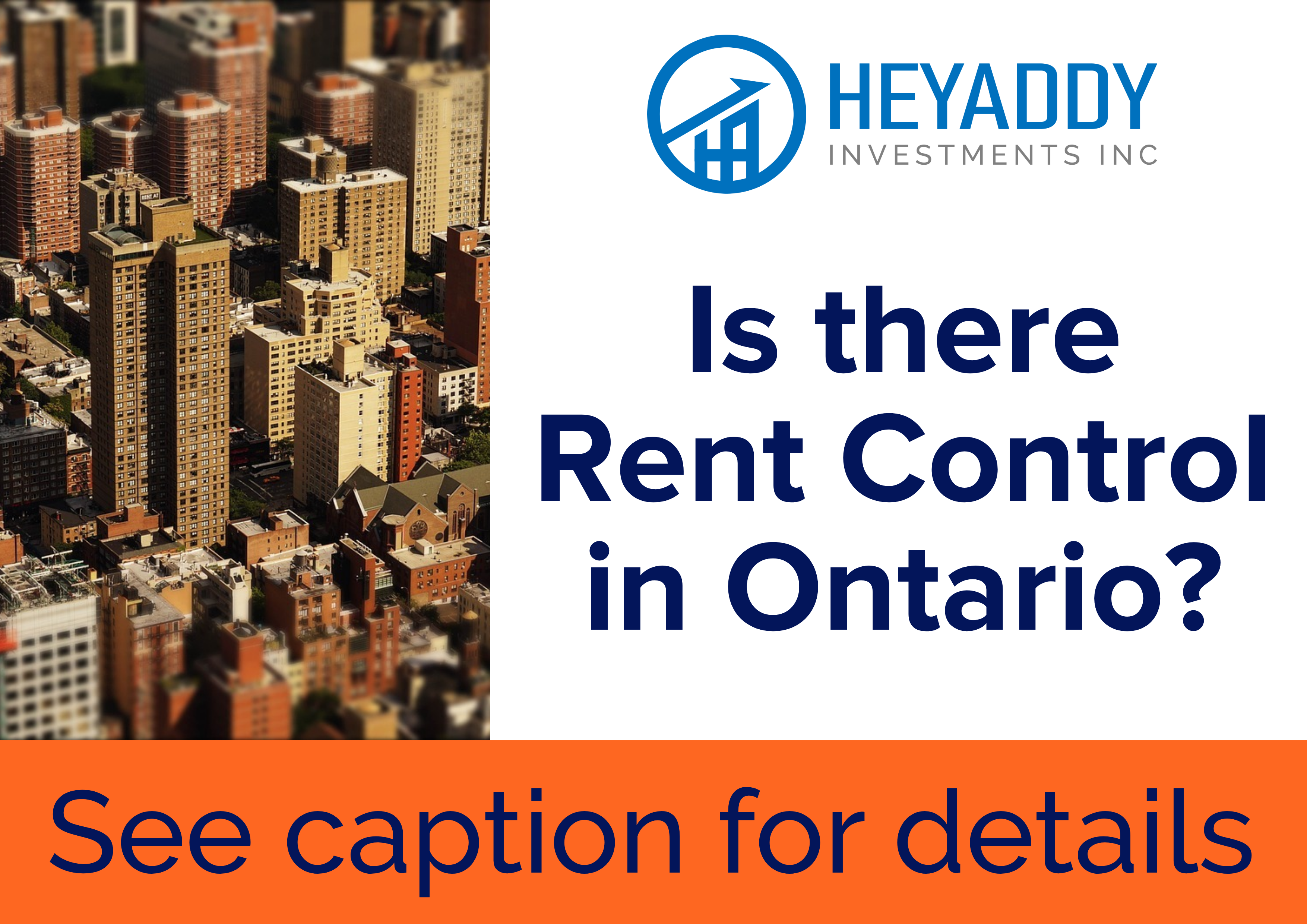Living in Ontario and want to find a space for rent? Well, before you proceed to doing that, you must be aware of the system of rent control in Ontario.

You must be wondering, what is rent control in Ontario? Well, it refers to the rules and regulations in Ontario, the province of Canada, which provides certain limits according to which the tenants can pay for the rental accommodation (and landlords can demand for it). This system applies only to units that were first occupied for residential purposes before 15th November 2018.
Ontario’s Residential Tenancies Act
To settle the rights and responsibilities of tenants and landlords, the government has introduced the Residential Tenancies Act in 2006. This Act ensures reinforcement of the system of rent control in Ontario. The official document of this Act states that its purpose is “to provide protection for residential tenants from unlawful rent increases and unlawful evictions, to establish a framework for the regulation of residential rents, to balance the rights and responsibilities of residential landlords and tenants and to provide for the adjudication of disputes and for other processes to informally resolve disputes”.
The Ontario’s Residential Tenancies Act came into effect from January 31st, 2007. Landlords and tenants for most of the rental units are covered by most of the rules in the Act. The Act also applies to land lease community, sites in a mobile home park, retirement homes and care homes.
Some of these rules may not apply to
- Residences provided by colleges or universities to students
- Public housing schemes
- Sharing system where tenant shares kitchen with the landlord.
- New buildings or all those existing buildings that have begun to be used for residential purposes after 15th November, 2018.
DISCUSSION
There’s a lot of different opinions about Ontario’s Residential Tenancies Act, and everybody’s view point differs sharply. The Act serves as an official document stating all the rules and regulations that the landlords and tenants must abide by. In case of disagreement between the two parties, there is a Landlord and Tenant Board that is responsible for solving their disputes.
LANDLORD & TENANT BOARD (LTB)
The Landlord and Tenant Board (LTB) provides the landlords and tenants with the basic information about their rights and responsibilities according to the Act.
Moreover, it works in a similar fashion to a court in case there is a dispute between the landlord or tenant. Any of the two can apply to the board to solve the dispute, which is generally solved in either of the two ways:
- Mediation: A mediator from the LTB discusses the situation and with the help of the landlord and tenant, reaches to a sound agreement which satisfies both the parties.
- Adjudication: In this case, a formal hearing is held where the landlord and tenants place their verdicts and any evidences they have, to support their say. An LTB member makes the final decision based on that and issues an order, which is a final and formal written document.
MAIN POINTS OF THE RESIDENTIAL TENANCIES ACT
Increment Of Rent by The Landlord
When the landlord and tenant come to an agreement for the first time, they set a certain rental rate and services to be availed like car parking etc. The rental prices are generally based on current market values. Ontario has a standard lease agreement which must be used by Landlords and tenants when entering into a lease agreement.
Once the formal tenancy contract begins, the landlord can only increase the rent on an annual basis. After one year, the rental prices may be increased and 90 days prior to that the landlord must send a written notice to the tenant stating that the rental fee is to be increased.
According to Ontario’s rent control system, the maximum rent increase for the coming year 2023 will be by 2.5%., which people are claiming to be really high. This implies that if, for a certain space rent was fixed at $2000 per month in 2022, the landlord can increase the monthly rent to $2050 in 2023.
In 2021, the rent increment rate did not change at all, reason being the COVID-19 pandemic. It was 1.2% in 2022, and this increment was seen due to the rising costs of living post pandemic. The rate has further increased for the next year, as mentioned above.
Check out the following graph to note the changing trends in the rate increment rates:

Rental Payment Methods
The landlord and tenant will decide upon the method of payment before they begin the tenancy. They can decide payment method through post-dated cheques or any other. Once the method is fixed, it can be changed only if the landlord and tenant both agree to it. Also, the landlord is allowed to collect a deposit, which can be equal to one month’s or one week’s rent amount (depending upon the tenant whether he’s paying rent on a monthly or weekly basis).
Responsibilities Of the Landlord:
According to Ontario’s Residential Tenancies Act, here are few important responsibilities of the landlord:
- The landlord must keep the property in a habitable condition.
- The property must meet all residential, safety and maintenance standards as mentioned in the provincial laws.
- Pay out the interest to the tenant on the deposit amount.
- Continue providing with basic utility services of the tenant’s rental space, and not shut off or terminate its Hot or Cold-water system
- Heating system (from 1st September to 15th June)
- Electric power
Responsibilities Of the Tenant:
From the same Act, mentioned below are few important responsibilities the tenant must:
- Keep the property in a good and clean state.
- Pay for all repairs if he or any of his family members are responsible for the damage.
- Pay the rental fee on a monthly/weekly basis as per decided.
- Never withhold any part of the rental amount.
To know more about the system of rent control in Ontario or to view formal documents as issued by the government of the province of Ontario, here are a few important links that you must visit:
| TENANT PROTECTION ACT, 1997 An Act to state the law governing residential tenancies |
| RESIDENTIAL TENANCIES ACT, 2006 An Act to revise the law governing residential tenancies |
| A GUIDE TO THE RESIDENTIAL TENANCIES ACT A basic guide to rights and responsibilities of the Landlord and Tenant Board |
| LANDLORD AND TENANT BOARD Contact the LTB Board right away! |





One thought on “The System Of Rent Control In Ontario And What You Should Know About It”